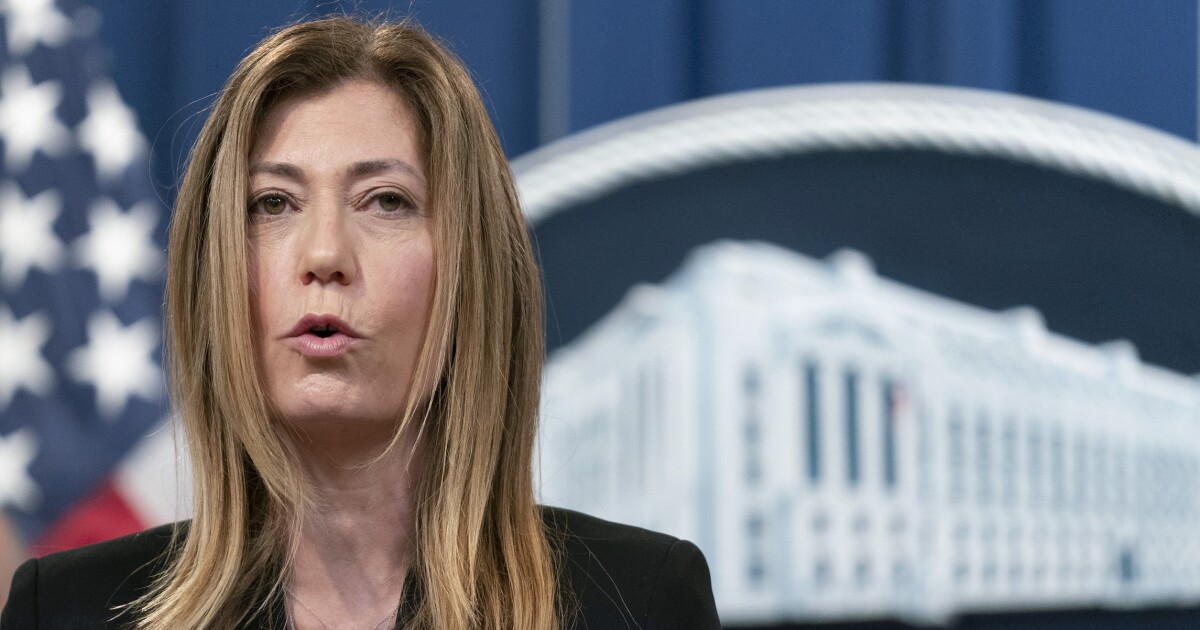

China and Mexico have stonewalled “information-sharing” and other “basic” steps to counteract the fentanyl crisis in the United States, according to federal officials.
“There are basic steps [China] could take, that they’re not taking right now, that could help a lot,” State Department Assistant Secretary Todd Robinson, who leads the counternarcotics bureau, told a Senate committee on Wednesday.
Robinson and other federal officials appeared before the panel as lawmakers seek to address “a crisis we cannot solve just within our borders,” as Senate Foreign Relations Chairman Bob Menendez (D-NJ) put it at the outset of the hearing. Yet their testimony pointed to a failure of international cooperation that has allowed cartels to import the precursor materials from China into Mexico, where they synthesize one of the deadliest drugs in the world for distribution in the United States — often to customers who believe they are purchasing more familiar, less lethal prescription drugs.
“The question I get asked when I’m out in the public more than any other is, why would these cartels kill their customers?” Administrator Anne Milgram, who leads the Drug Enforcement Agency, told lawmakers. “And the answer today is that fentanyl is so addictive that the cartels are using it to drive addiction. And, for them, if a user dies, it is the cost of doing business.”
CALIFORNIA TEENAGER TRICKED INTO BEFRIENDING UNDERCOVER DEA AGENT IS CHARGED AFTER SELLING HIM DRUGS
China agreed to clamp down on fentanyl exports in 2019, but Beijing “has repeatedly declined diplomatic and congressional requests to stop” supplies of the precursor chemicals that the cartels import into Mexico, according to Milgram. And Beijing suspended a counternarcotics initiative with the U.S. in August after then-Speaker Nancy Pelosi (D-CA) visited Taiwan, an island democracy Chinese Communist officials want to control.
“I doubt Xi Jinping cares that his chemical and pharmaceutical industries are supplying the Mexican cartels that are flooding the United States with fentanyl,” Menendez said. “But let’s be clear — his government’s negligence is helping unleash a deadly wave of fentanyl-related deaths, not only here in the United States, but also in Canada, in Mexico, as well as in countries in East and Southeast Asia that are struggling with their own crisis of synthetic opioids from China.”
Chinese officials have evinced little interest in preventing drug cartels from acquiring the chemicals they need to produce fentanyl, according to the State Department witness. “They could monitor and make more transparent the labeling of chemicals leaving the country,” Robinson said. “And, they could follow the trail and make sure that the companies that are exporting these chemicals know who the chemicals are going to, particularly in Mexico, where we know the drug is being synthesized. They’re not doing that now. They’re not talking to us really about it, but they should.”
And Mexico, for its part, similarly has proven uncooperative with DEA officials in terms of information-sharing, law enforcement, and the extradition of “232 drug-related defendants” who will face charges in the U.S. if Mexican officials transfer them into American custody, according to Milgram.
“We are not getting information on fentanyl seizures, we are not getting information on seizures of precursor chemicals, and that kind of information … is vital for both countries — both for Mexico and for the United States,” she said. “We are very concerned about the clandestine labs across Mexico. And we have offered, and continue to offer and stand ready to work in partnership with Mexican authorities, to dismantle and take down those clandestine labs throughout Mexico jointly and to be of any service that we can.”
That overview of breakdowns drew a sharp condemnation from the committee. “I understand that our witnesses have to be diplomatic in the way that they talk about Mexico, but let’s be honest: At best, Mexico is not taking this crisis seriously enough,” Sen. Chris Murphy (D-CT) responded. “And at worst, the Mexican government, or at least significant parts of it, are either looking the other way or complicit with cartels. That’s just the truth.”
While many Republican questions centered on the relationship between border security and drug trafficking, Milgram emphasized that most of the fentanyl passes through legal “ports of entry” despite federal efforts.
“The vast majority of fentanyl is coming in the ports of entry — two, particularly, in California, and two in Arizona,” she said.
The hearing showcased bipartisan frustration with both China and Mexico. “If China is complicit in supplying fentanyl that comes to the United States, then we need to consider sanctions,” said Sen. James Risch (R-ID), the top Republican on the committee.
CLICK HERE TO READ MORE FROM THE WASHINGTON EXAMINER
Menendez sent a similar signal. “We need to create an international coalition that pressures China,” he said. “And then we have our next-door neighbor [in Mexico]. … If the good overtures to try to get them to act [are] not working, then there has to be other considerations. We work with our Mexican friends with kid gloves on this issue, and I just [think] it’s fundamentally wrong. I don’t know how many more lives have to be lost for Mexico to get engaged.”







